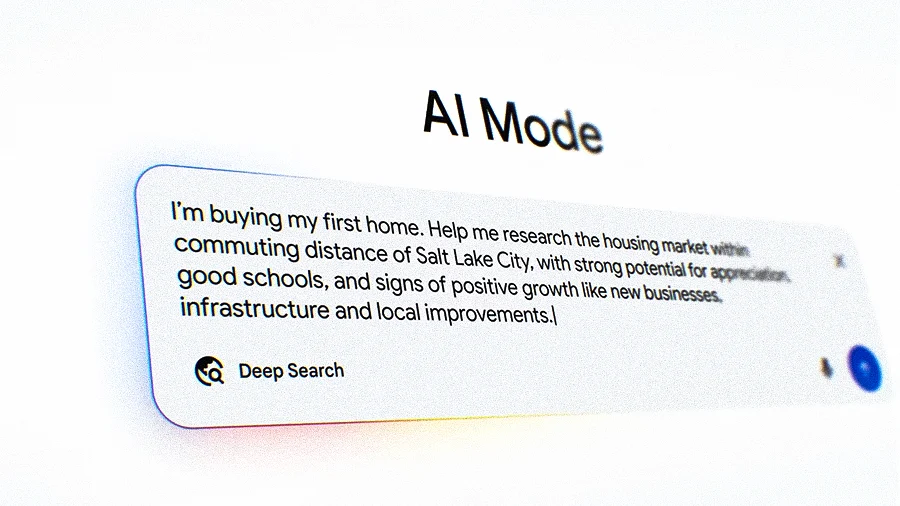


AI creates a "content crisis," devaluing information and making traditional SEO strategies obsolete in a web filled with derivative content.
Daniel Espejo, Founder and CEO of Omnia, explains ways to create content that is high-value for both human and agentic audiences.
He explores the potential impact of pay-per-crawl on creators and businesses, including the "11th article problem" of monetization in today's content landscape.

Headlines around Cloudflare blocking AI crawlers and introducing pay-per-crawl dominated industry news this summer. But what this actually surfaced was a deeper conversation defining high-value content today and its monetization structure.
We spoke with Daniel Espejo, the Founder and CEO of Omnia, a new company helping brands rank in AI search. While serving as the General Manager for Spain and Portugal at Klarna, Espejo ran into a common industry problem: how to rank. But as he dug into the problem, and foresaw the rise of AI, Espejo realized the issue was no longer how to rank on Google, but how to become an indispensable source of truth for the AI that will power tomorrow’s economy.
The first hurdle was to address the sheer volume of mundane content created by AI over the past few years. "A lot of the content on the Internet is not genuine," he said. "It's just repurposing of existing information that's diluted the value of online information." Recognizing original thought in the sea of sameness is increasingly tricky. But it's this high-effort work that is worth paying for and worth producing.
Two types of content: To him, there's the ingenuine, generic content and then there's the high-effort, original work. The latter is the type of work that should be rewarded monetarily. "Think about a journalist investigating a topic in-depth. They're doing the groundwork to publish something completely new that doesn't exist," he explained. "It's a good practice to reward that person."
Monetizing good content: "The point of Cloudflare's pay-per-crawl is not really about protecting your content," Espejo said. "It's more about how are you going to monetize creating really, really good content?" This principle of rewarding originality is at the heart of Espejo's work, and he is not alone in this thinking. Experts have raised similar critiques about how we create content, what it looks like, and what function it serves.
As generic content becomes an increasingly cheap commodity, it raises the stakes for organizations to deliver that hyper-relevant, high-value content. However, it isn't just humans who are consuming, but a legion of intelligent agents. Espejo recognized that good content needs to do more than inform the human audience, it also needs to position brands as authorities in the eyes of AI.
Writing for AEO: For Espejo, the answer lies in a two-part framework for a new kind of SEO, one aimed squarely at AI agents. "The content itself has to be written in a way that AI likes," he said. "Does it have lists or Q&A? Does it feel authoritative and informative? Secondly, as a content creator, you need to understand where AI Overviews gather information. If AI never accesses your blog, you're wasting your time trying to rank."
A tale of two creators: This shift creates a fundamental strategic tension for businesses. The goal of content has always been discoverability, but emerging pay-per-crawl models suggest a future where monetization and dissemination are in direct conflict. Espejo argued that the right path depends entirely on a company's core business model. "Pay-per-crawl is great for people who sell content directly," he said. "But for most businesses, who use content to sell other products, it means less visibility on AI, and that’s going to hurt their bottom line."
Wrapping up, Espejo introduced a final, more complex question that pushes the debate around monetization and high-value content a step further. How can we establish a fair economic model when AI becomes a creator itself? "What happens if you take ten genuine articles, protected by pay-per-crawl, and then you create an 11th article with AI? Who should be able to profit from that 11th article? How the money should flow within this new paradigm will be quite interesting," he reflected.
This "11th article problem" complicates the entire value chain. For his clients at Omnia, whose goal is product discovery, the answer is simpler. But for others, the path forward is fraught with ambiguity. Espejo brought the issue full circle, saying the greatest risk is to the very people who create the foundational value. "The journalist's job is to create a very genuine piece of content, but they aren't upselling anything else," he explained. "The question of payment becomes very tricky. This is likely to be a big industry debate for some time."